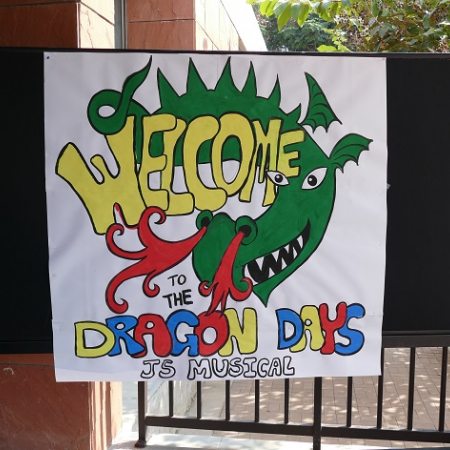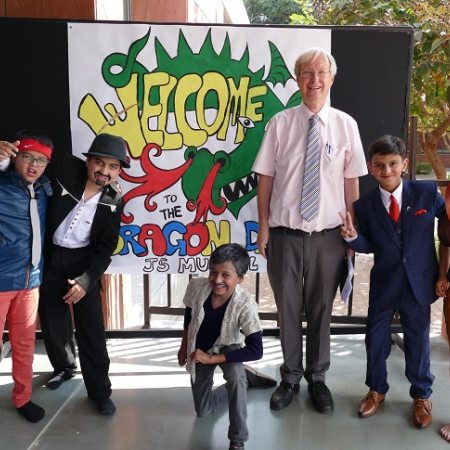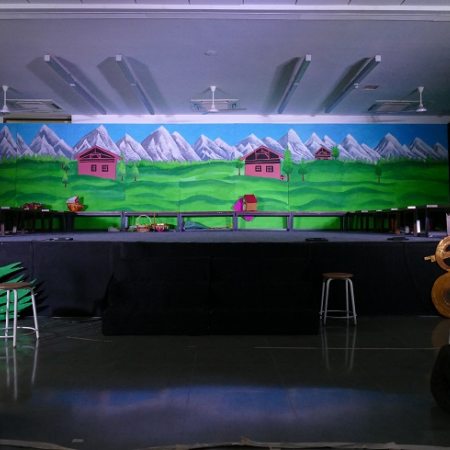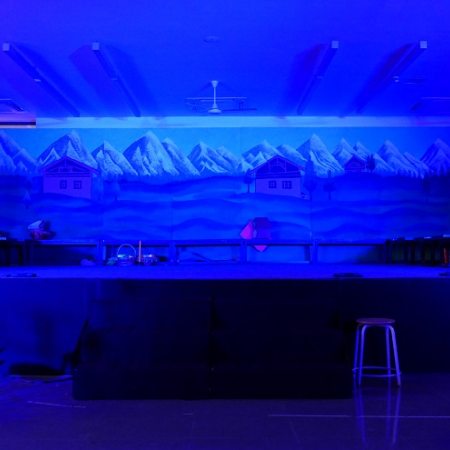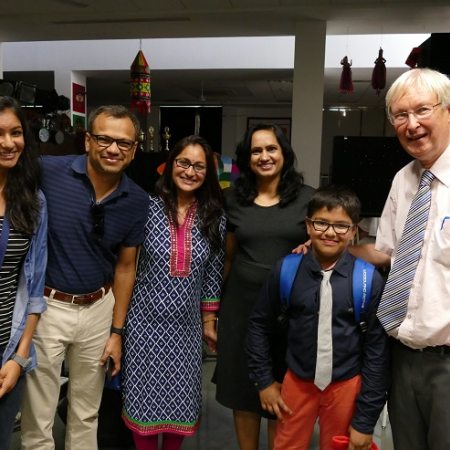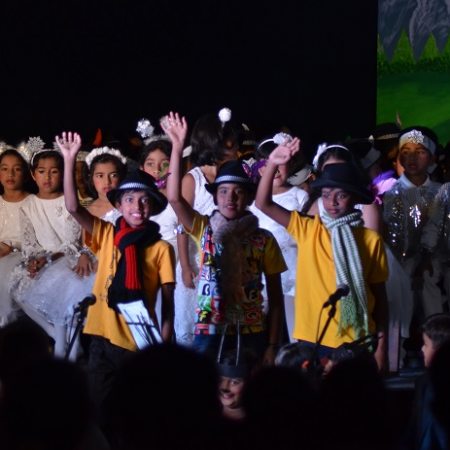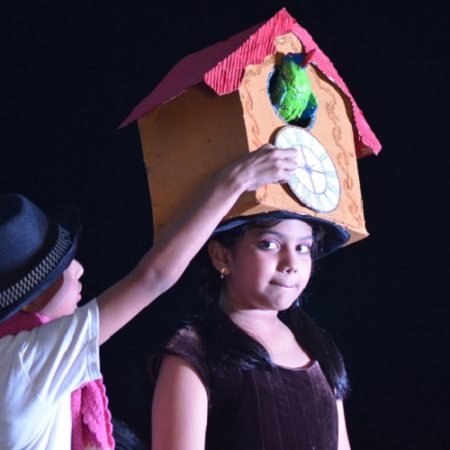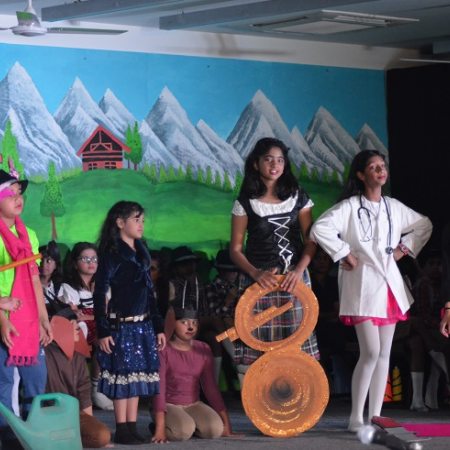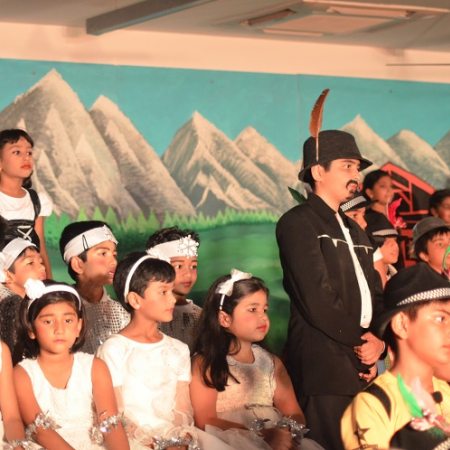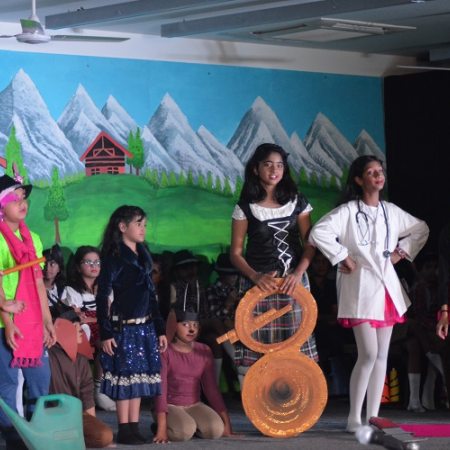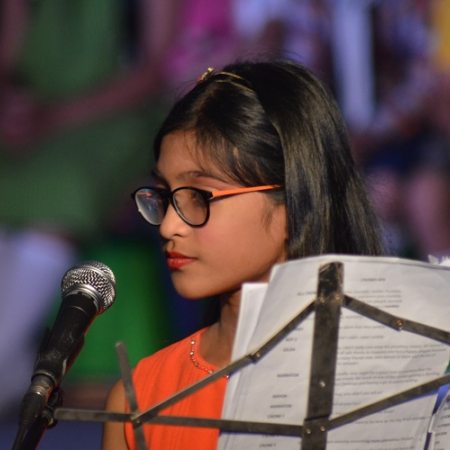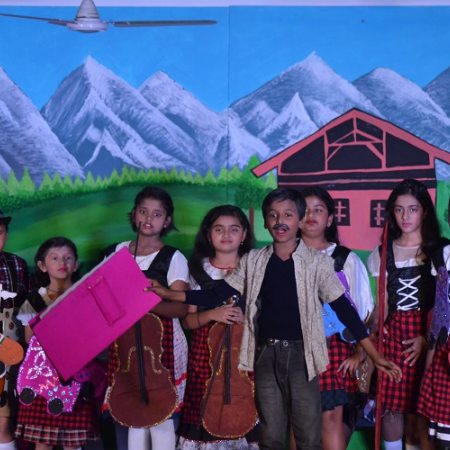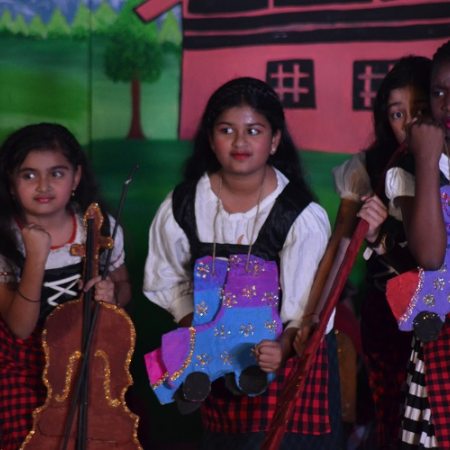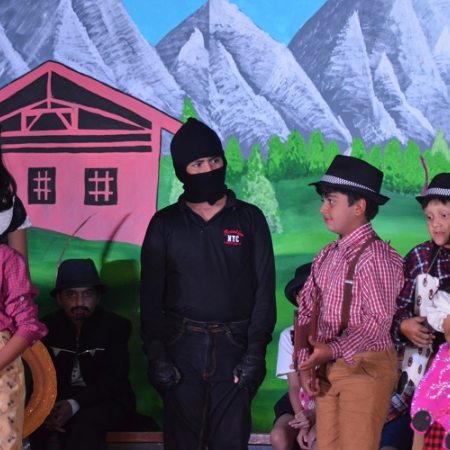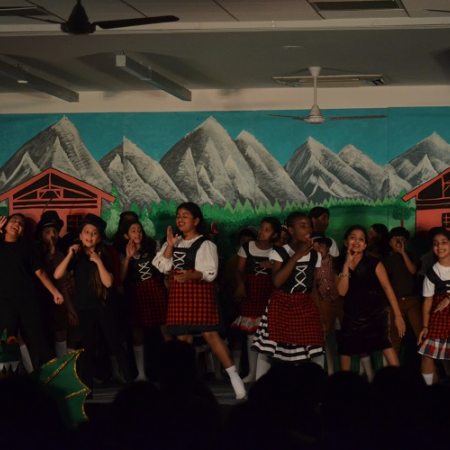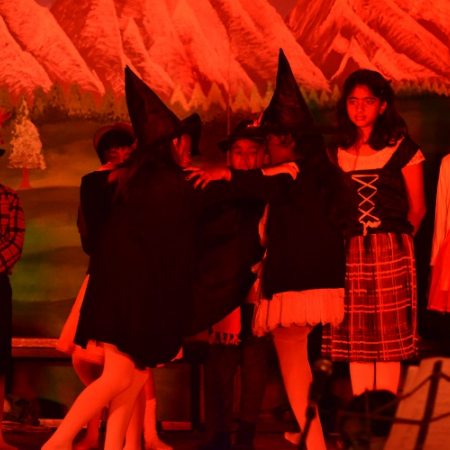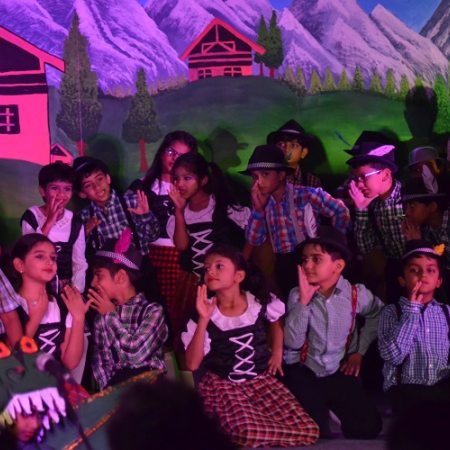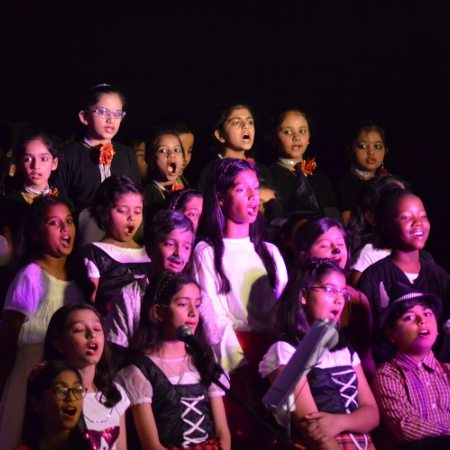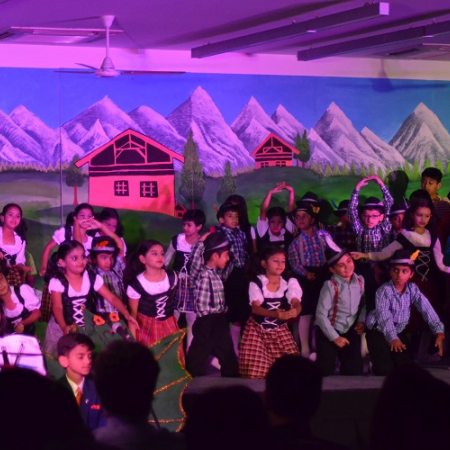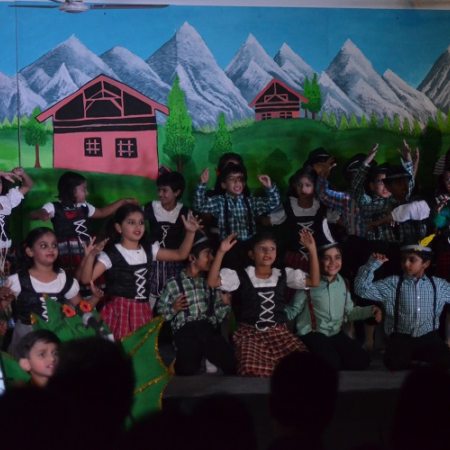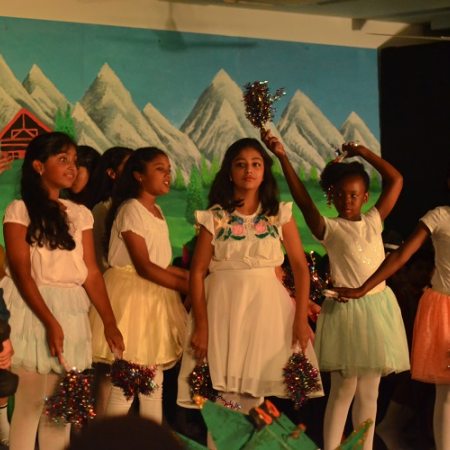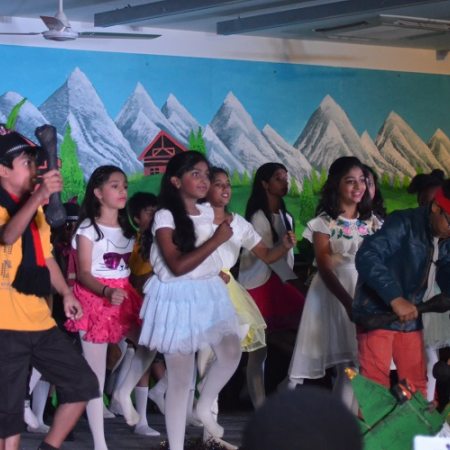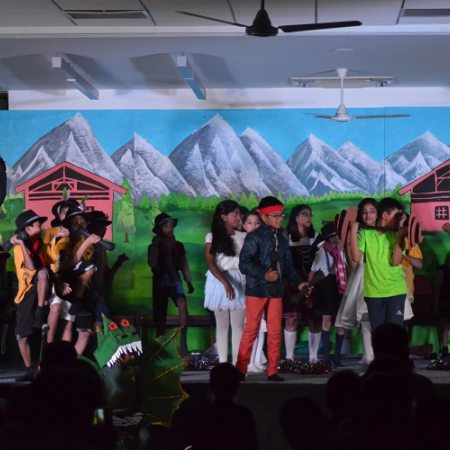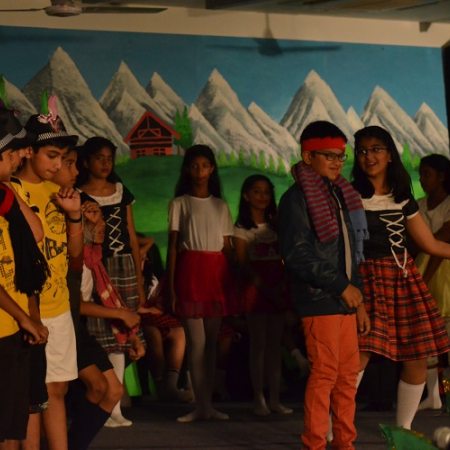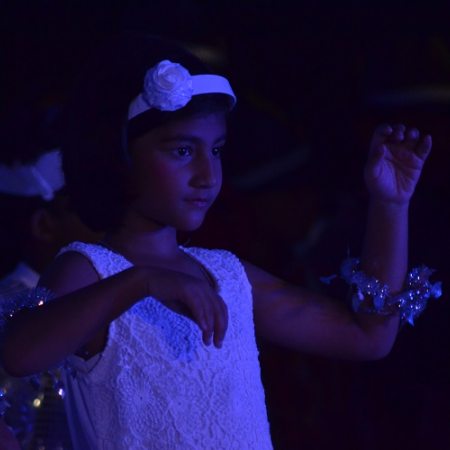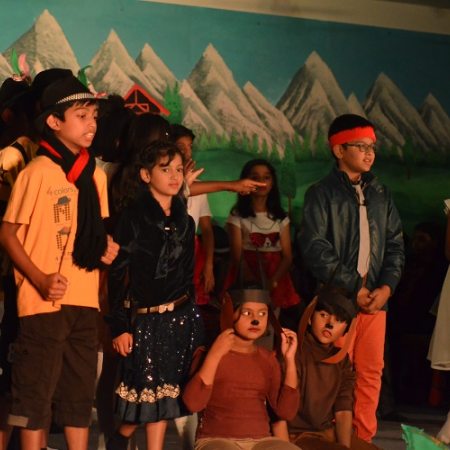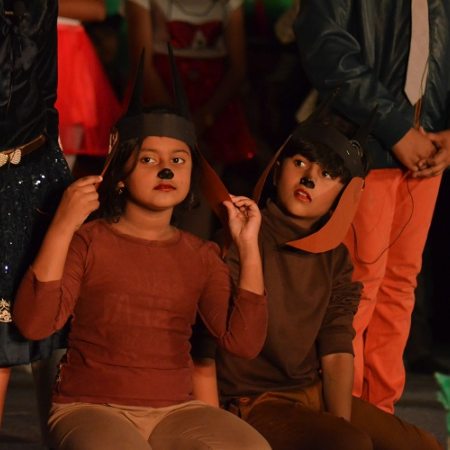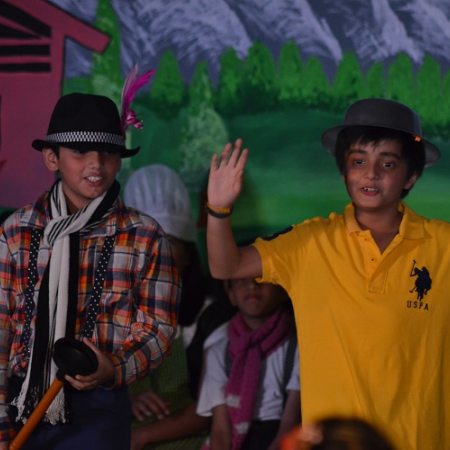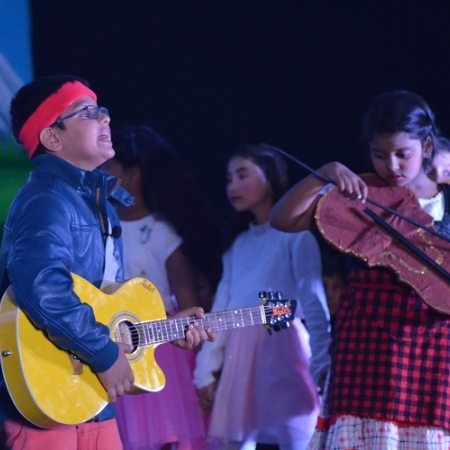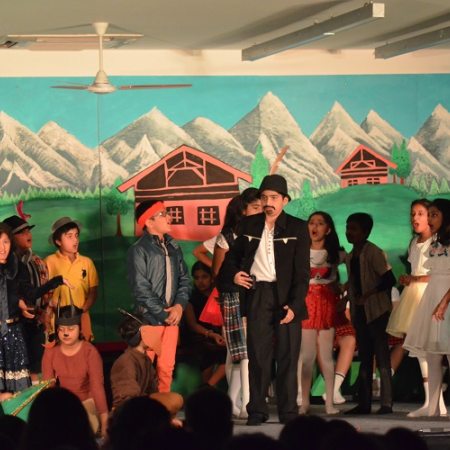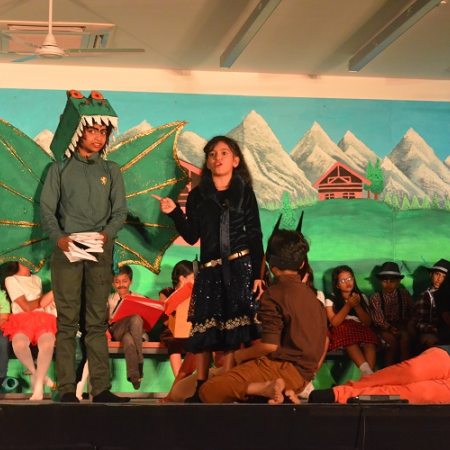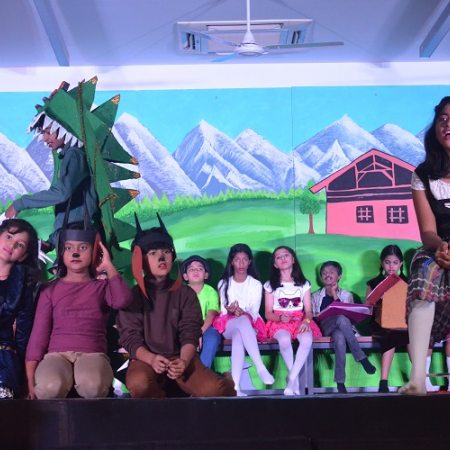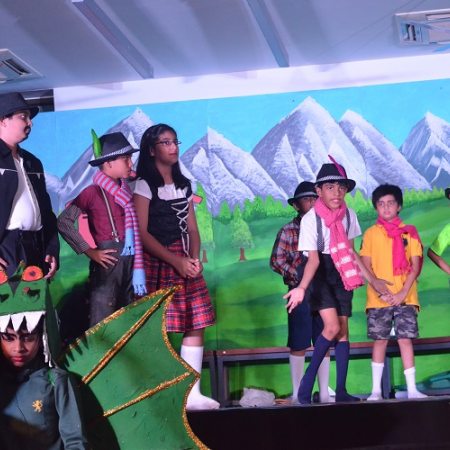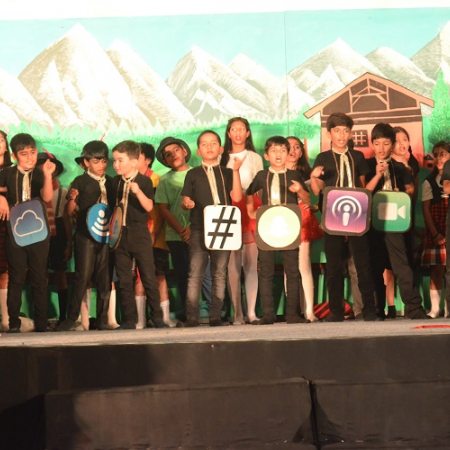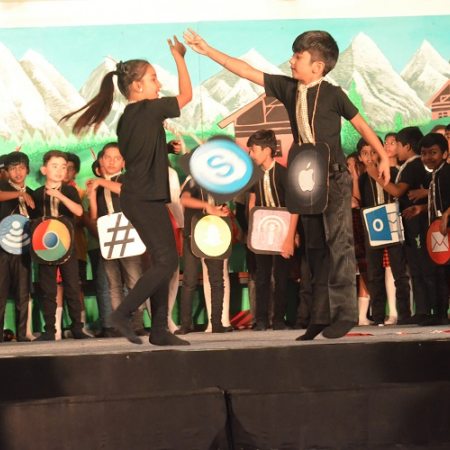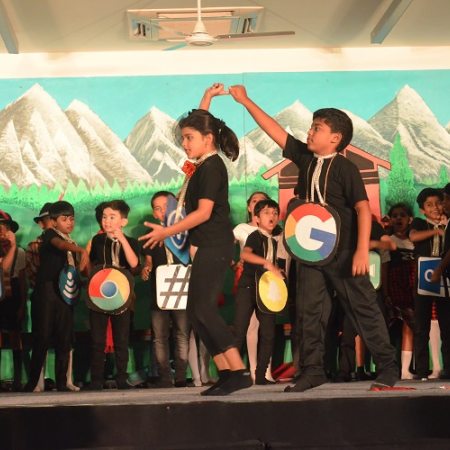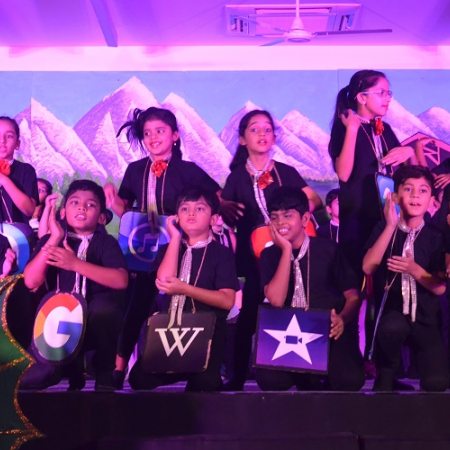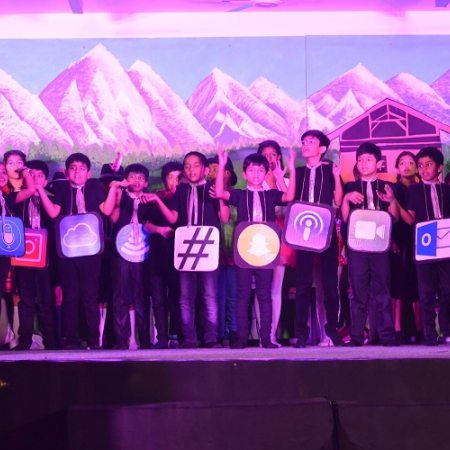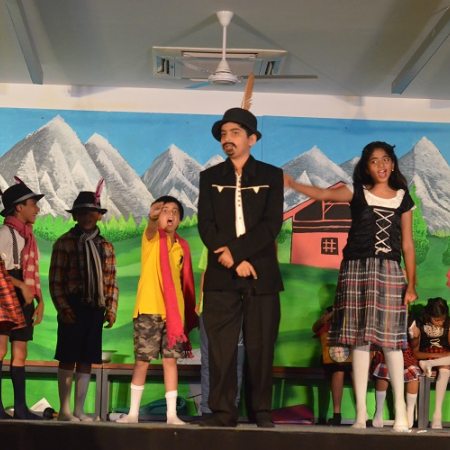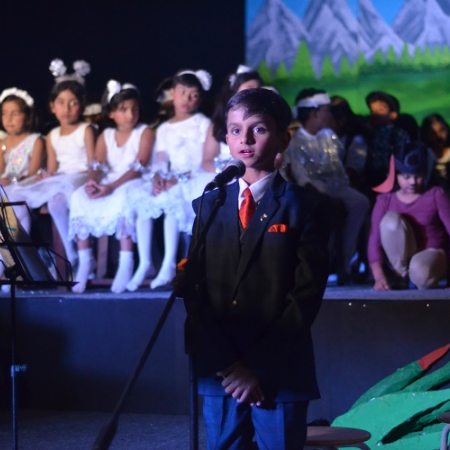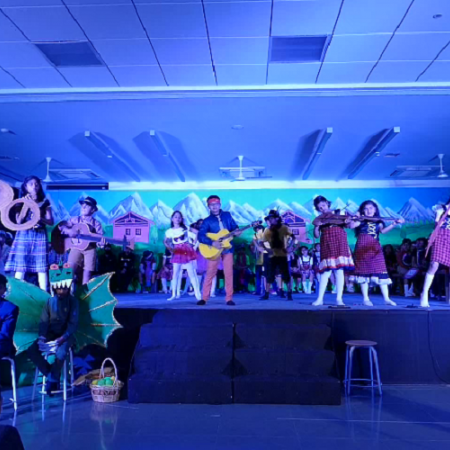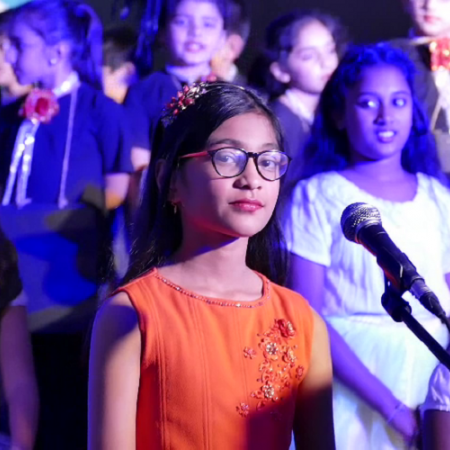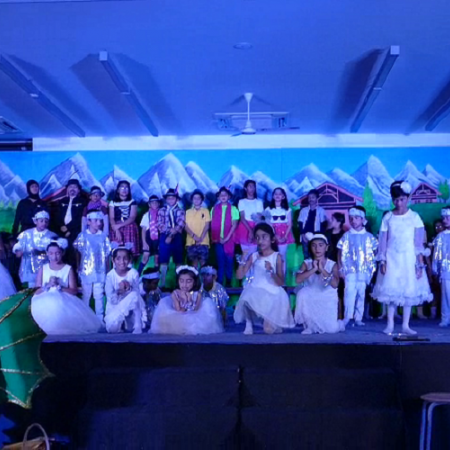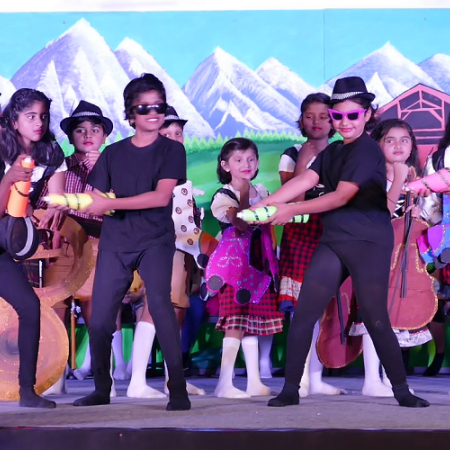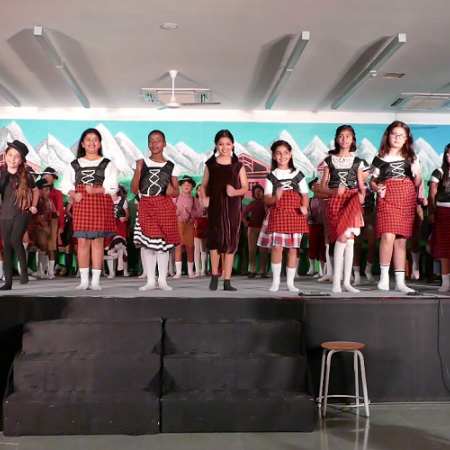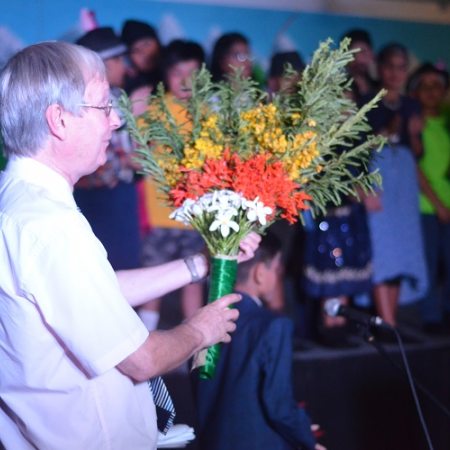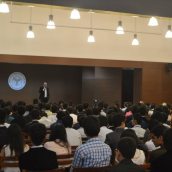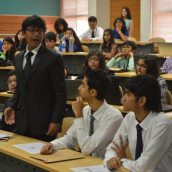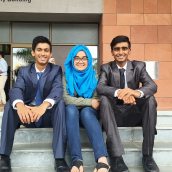Aga Khan Curricular Strands
The Aga Khan Curricular Strands (AK Strands) are a unique part of the programme offered by the Aga Khan Academies. The AK Strands are areas of learning aimed specifically at developing knowledge, skills and attitudes required by future leaders.
Our goal at the Academies is to develop young people who have strong local roots and are also globally minded. They should be able to become leaders in whichever fields they choose.
To help achieve this goal, we have identified five areas of learning, the Aga Khan Curricular Strands, that we believe are important for our students. These are:
- Ethics
- Pluralism
- Cultures (with an emphasis on Muslim civilisations)
- Governance and Civil Society
- Economics for Development.
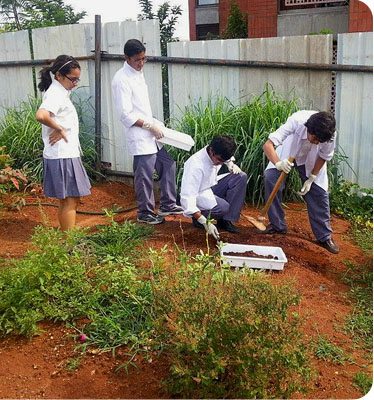 Implementing the AK Strands
Implementing the AK Strands
The Aga Khan Curricular Strands are not taught as independent subjects. Instead, we weave them into the existing subject areas of the academic curriculum. They help inform the selection of content and themes for study. The AK Strands also provide direction for school life outside the classroom in areas such as policy making, recruitment, student life and residential life.
Two of the AK Strands, Ethics and Pluralism, help students develop values and dispositions required by ethical leaders. Our students learn about these areas in theory and are also encouraged to practice what they learn in their everyday lives.
Through the other three AK Strands, our students learn about ideas that are important to the functioning of societies. In particular, they learn about how these ideas impact people’s lives in countries of the developing world. The knowledge they gain helps them understand key issues from both local and international perspectives.
The AK Strands in practice
The Aga Khan Curricular Strands were developed at the first Aga Khan Academy in Mombasa and are designed to be used in different cultural contexts. Teachers at the Aga Khan Academy Hyderabad helped tailor the AK Strands for the local environment in India and the teachers at the Aga Khan Academy Dhaka will do the same.
For example, grade 3 students worked on a history and geography unit about Hyderabad that related to Economics for Development. The students examined how the physical features of the area influenced the city and its economic activity. They learned about employment today and also looked at traditional forms of work, including a visit to a nearby weaving cooperative. This unit helped the students understand both general ideas about economics and their impact on daily life in Hyderabad.
Through the Aga Khan Curricular Strands, our students develop attitudes and values that will help them throughout their lives. They also gain knowledge and understanding that will allow them to contribute positively to their societies in the future.
For more information on the educational programme offered at the Aga Khan Academy Dhaka, please visit the Academic Programme page.
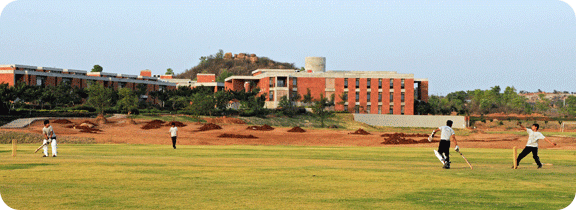
Sporting Activities
One of the goals of the Aga Khan Academy Hyderabad is to create principled young people with a strong sense of integrity, honesty, fairness and justice, who respect the dignity of others.
Physical education, and competitive games and sports prepare our students for real-life situations, encouraging them to take leadership roles and allowing them to tackle challenges confidently and in a spirit of cooperation.
Inter-school sports
Both Junior and Senior School students have the opportunity to represent their school in various sports, such as swimming, basketball, cricket, hockey, football, water polo and athletics.
Our teams train regularly during the week and cater to students of all ability levels.
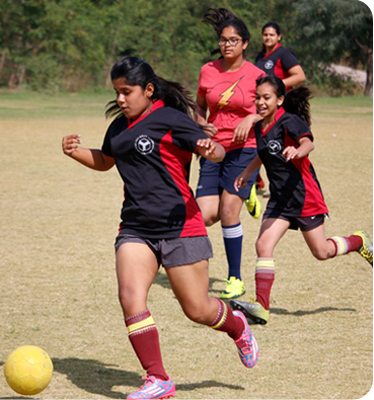
Clubs
We offer a diverse selection of sporting activities for our students during after school clubs.
Clubs are currently offered in football, squash, basketball, cricket, swimming, table tennis, tennis, and yoga/gym.
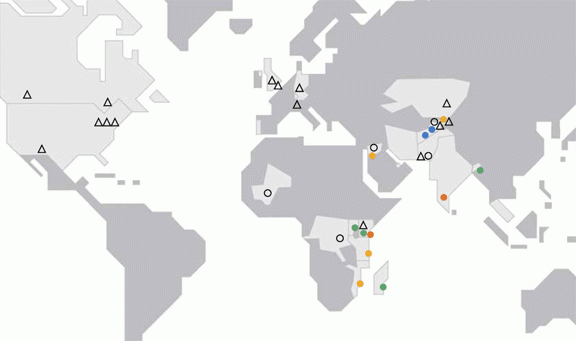
The Academies Network
The Aga Khan Academy Hyderabad is the second in a network of Aga Khan Academies being established in countries across Africa, South and Central Asia, and the Middle East. The first Academy opened in Mombasa, Kenya in 2003 and the third in Maputo, Mozambique in 2013.
The aim of the Academies is to develop future leaders with the skills and knowledge to support positive development in their societies. We achieve this by recruiting exceptional young people from all backgrounds and providing them with the highest international standard of education.
Admission is competitive and based on student merit, regardless of a family’s ability to pay. Each Academy endeavours to meet the demonstrated financial need of each admitted student.
When complete, the network of Academies will form a global learning community of approximately 18 schools in 14 countries (map). They will eventually serve approximately 14,000 girls and boys of exceptional calibre, graduating 1,500 students annually.
For more information, visit our Academies network home page.
2017 Academy Junior School Musical, Dragon Days
The annual Academy Junior School Musical, Dragon Days, was performed at the Junior School Library on the afternoon of Friday 1st December 2017.
Synopsis of Dragon Days
In the pretty, alpine village of Stumbledorf (just a short ‘trip’ away), the overdramatic villagers await a hero to rescue them from the mythical creature whose presence overshadows their otherwise idyllic mountain home. Just in the nick of time, seemingly in fulfilment of an ancient prophecy given by three wizened old crones, Tommy Rumble and his fearsome mother stumble into Stumbledorf, which causes great excitement. Could Tommy finally be the answer to the village’s problems? Can he get fit in time to fight the dragon or will jealousy and mischief thwart his heroic exploits? Has the dragon really developed a taste for goats, or is it just a social media feeding frenzy? Will the village ever be free of its Dragon Days?
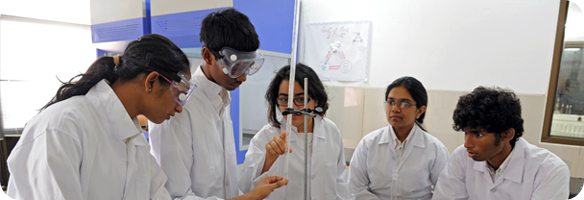
Academic Programme
The Aga Khan Academy Hyderabad offers an education of an internationally recognised standard of excellence to prepare students to become intellectually curious, globally-minded citizens of the world.
The Academy programme develops students who are committed to positive change and are able to understand and analyse complex issues of local, national and global significance.
Our curriculum is built on the framework of the International Baccalaureate (IB). The IB is a thorough, multidisciplinary curriculum that fosters:
- intellectual curiosity
- creativity
- leadership development
- social consciousness
- a pluralistic sensibility.
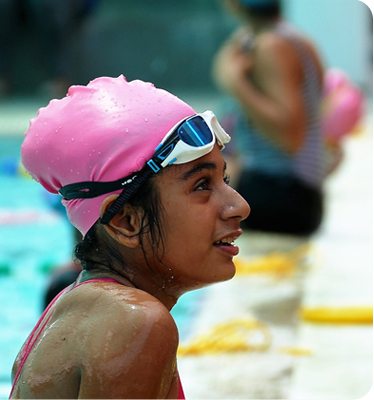 The IB is also known for preparing students for admission to the best universities in their own countries and abroad.
The IB is also known for preparing students for admission to the best universities in their own countries and abroad.
Our focus is on developing students' critical thinking skills and the ability to analyse issues. We also emphasise multicultural understanding and awareness. One of the ways in which we help our students develop skills for ethical leadership is through the Aga Khan Curricular Strands. These are cross-disciplinary areas of study that have been developed for the network of Aga Khan Academies.
Overall educational programme
Our curriculum is complemented by enrichment, athletic and community service initiatives. The overall educational programme is designed to educate well-rounded, civic-minded individuals. It enhances students’ academic excellence, leadership skills, sense of civic responsibility, understanding of global issues, and analytical and study skills. The programme also reinforces an understanding of local languages, history, cultures and environment.
When they graduate from the Academy, students are expected to be computer literate and have a thorough understanding of the diverse academic disciplines covered in the IB curriculum. They should have mastered at least two languages, including English. Through the planned international exchange programme, our students will be able to enhance their foreign language learning and appreciation of other cultures.
Our graduates are thus well prepared for the rigours of higher education and to pursue opportunities in an increasingly interdependent world.
For further information on the IB programmes offered at the Aga Khan Academy Hyderabad, please visit the following pages:
- Primary Years Programme (grades 1–5)
- Middle Years Programme (grades 6–10)
- Diploma Programme (grades 11–12).
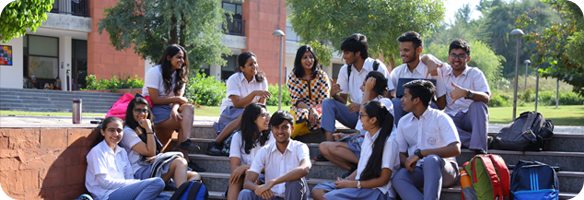
The Junior and Senior Schools
The Aga Khan Academy Hyderabad is made up of two schools, the Junior School and the Senior School, which together cater to students from grade 1 (age 6) to university entrance.
Junior School
All Junior School students follow the International Bacaalaureate (IB) Primary Years Programme (PYP). Through the PYP, our students learn to be confident, independent and creative learners.
The Junior School building has been designed to address the needs of younger children, with age-appropriate facilities and classrooms. In addition to the PYP classrooms, the building contains the Junior School library, and music, art and information technology rooms. There are also large playing fields and a playground.
Senior School
Students in the Senior School pursue either the IB Middle Years Programme or the IB Diploma Programme. Those from the local area can choose to attend as day students, while those from other parts of the country or region live on campus as part of the residential programme.
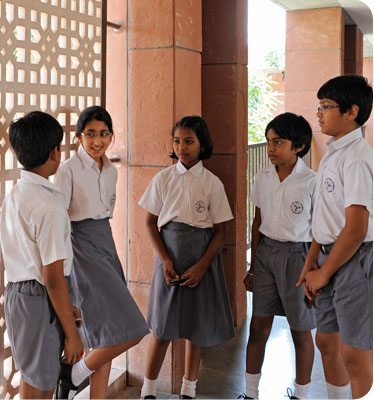 The Middle Years Programme is for students in grades 6–10. It helps them master essential skills and knowledge, and teaches them to be critical and analytical thinkers. The Diploma Programme is offered to students in the final two years of school. It is an internationally recognised and demanding programme that prepares students for university entrance.
The Middle Years Programme is for students in grades 6–10. It helps them master essential skills and knowledge, and teaches them to be critical and analytical thinkers. The Diploma Programme is offered to students in the final two years of school. It is an internationally recognised and demanding programme that prepares students for university entrance.
The school caters to both the intellectual and personal growth of students. It has a wide range of facilities that include:
- laboratories for the sciences and information technology
- art and music rooms
- library and resource centre
- career counselling centre
- student and teacher lounges
- cafeteria and dining area.
The building is networked so that computers become common resources for teachers and students. The multipurpose hall can be used for a variety of events ranging from theatre productions to parent–teacher meetings. The school also has swimming facilities as well as playing fields for soccer, field hockey and athletics.
For further information about applying to any of the programmes offered at the Aga Khan Academy Hyderabad, please refer to the admission requirements.
The MUN Press Corps
Reporters and photographers were on their feet at all times, running to capture a crisis update, to jotting down the points. As director, chasing them to do their work was a bit tedious, being left with a sea of words to look over. At the end of the day, the array of words and pictures will keep the memories of the Aga Khan Academy, Hyderabad Models United Nations alive for years to come.
By Nikita Madhani
Virtual Open Days
Visiting a school is usually all about the people; being able to get a sense of the teachers who will be guiding and nurturing your child, seeing the current students and trying to envisage your child amongst their new peer group! Whilst that is not possible at the moment due to the global pandemic, we at the Aga Khan Academy Hyderabad still very much want to meet you. As a group, we have put together a video that will allow you to meet the team and gain further information about the school through the website.
Our Virtual Open Days (VOD) aim to give you an introduction to the Academy, but we also understand there is plenty left to discuss beyond the information provided and the staff is eagerly looking forward to speaking to you in person. The event is being hosted by the Admissions team and each session is divided into a virtual tour of the school hosted by our students and members of staff, followed by a Q&A with our leadership team.
Register to join one of our upcoming Virtual Open Days!
Click here to express your interest to be a part of our Virtual Open Days in February. Our Admissions team will get back to you when the dates are confirmed.
The Aga Khan Academy Hyderabad is a special place, where a sense of community and family runs through everything that we do. We hope this Virtual Open Day gives you an idea of our vision, our people and our campus. We look forward to welcoming you in person in the near future. We hope to #SeeYouSoon!
For further information, please feel free to reach out to our Admissions team
Dania Quadri (Class of 2014): Giving back as an alumna
“Being part of an open-minded community that encouraged challenging what we were taught, the willingness to accept one another and inspire each other to grow constantly, was very refreshing. I credit these experiences for much of whom I am today.”
– Dania Quadri, Class of 2014
She was also instrumental in helping to organise the Mental Health Awareness Week (MHAW) in September 2016.
“As I aspire to be a doctor, I feel that it is necessary to acquire experience in a role that demands care, patience and a great deal of understanding,” she explains. “I knew teaching and organising the MHAW would contribute to my personal growth and career aspirations but it would also allow me to give back to my school – something very important to me.”
Through MHAW, Dania was able to contribute to reducing the stigma associated with mental illness within the Academy community.
“As a student myself, I know how hard it is for students who are mentally unwell to cope with studies and social life at school," she said. "I wanted to spread awareness about it being perfectly normal to feel mentally unwell, to know the difference between clinical illness and just a rough emotional phase, and to encourage students to seek help and advice if they are feeling low.”
Her internship made her realise she was more passionate about education than she thought. She particularly enjoyed the responsibility an educator has in developing a student’s personality and knowledge.
“As a teacher, it was interesting to observe school from the other side," she said. "Spending time with all the teachers made me realise how much they actually care for their students. The support is incredible at the Academy and different learning abilities are not only understood but truly valued.”
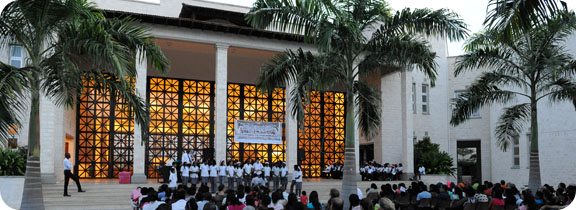
History
In 2000, His Highness the Aga Khan initiated the establishment of the Aga Khan Academies, an integrated network of schools dedicated to expanding access to the highest standard of education.
The Aga Khan Academies is an agency of the Aga Khan Development Network (AKDN), which is chaired by His Highness the Aga Khan. The AKDN has a long history of involvement in education in countries of the developing world, with the first schools now under the AKDN umbrella having been founded in 1905 in India and Zanzibar. Currently, AKDN agencies operate more than 240 schools and educational programmes ranging from early childhood through to post-graduate education.
Establishment of the academies
In 2003, the first of Aga Khan Academy opened in Kenya on an 18-acre site in the Kizingo area of Mombasa. The Aga Khan Academy (AKA) Mombasa has already established a highly successful track record, with its students placing among the top tier worldwide in academic performance.
The Aga Khan Academy Hyderabad is the second to be established and opened with its first intake of students in August 2011. As with all the Aga Khan Academies, AKA Hyderabad selects students of all socio-economic backgrounds who show promise in academic and other areas, and who demonstrate good character and serious intent.
A third Aga Khan Academy, in Maputo, Mozambique, opened in August 2013 with its lower primary school. In 2022, the Aga Khan Academy Dhaka in Bangladesh opened.
Future academies
The other Academies are at different stages in the planning and development process.
